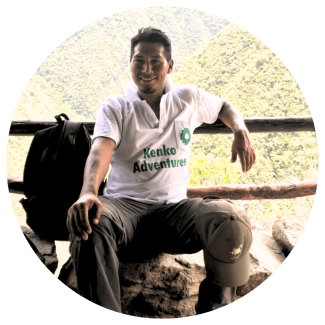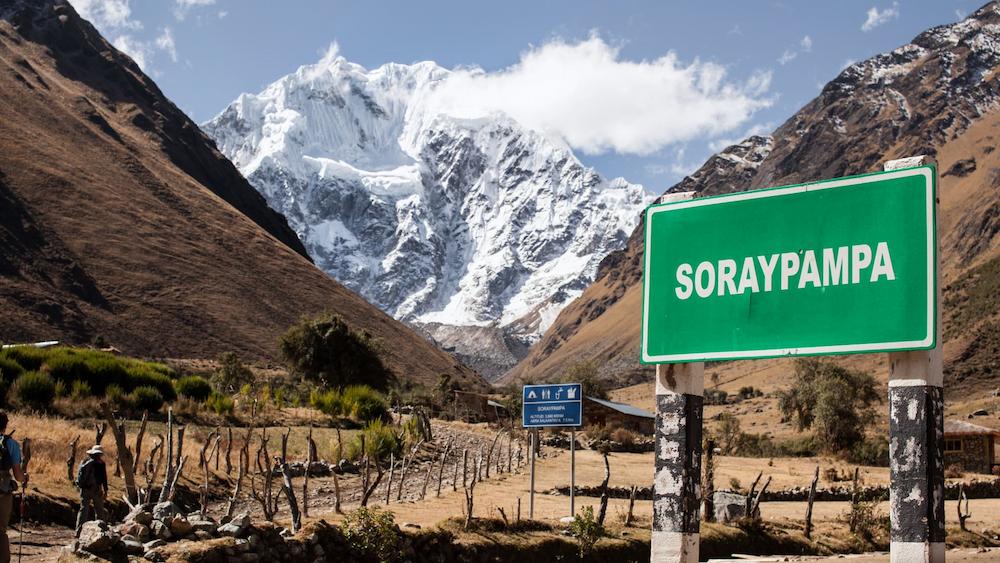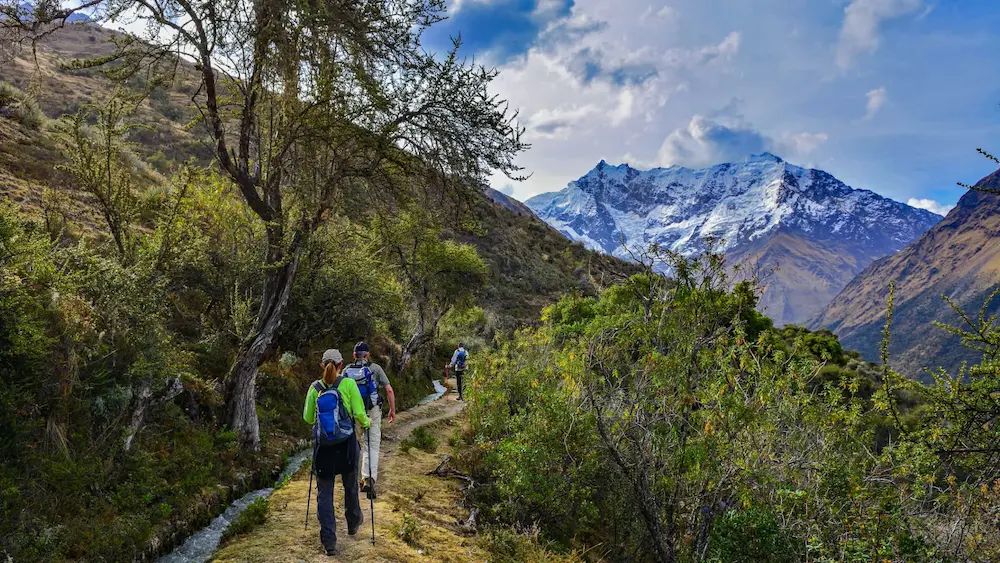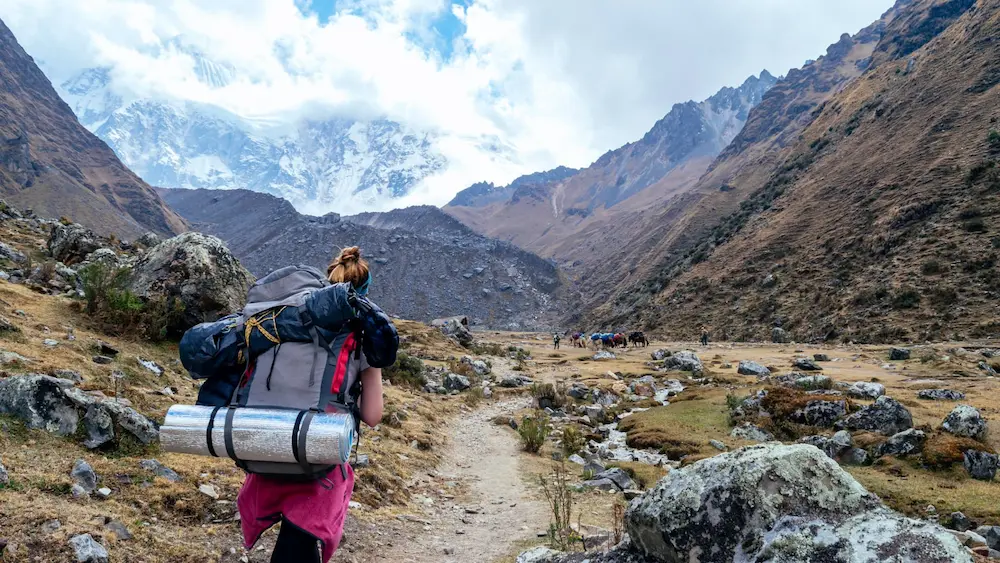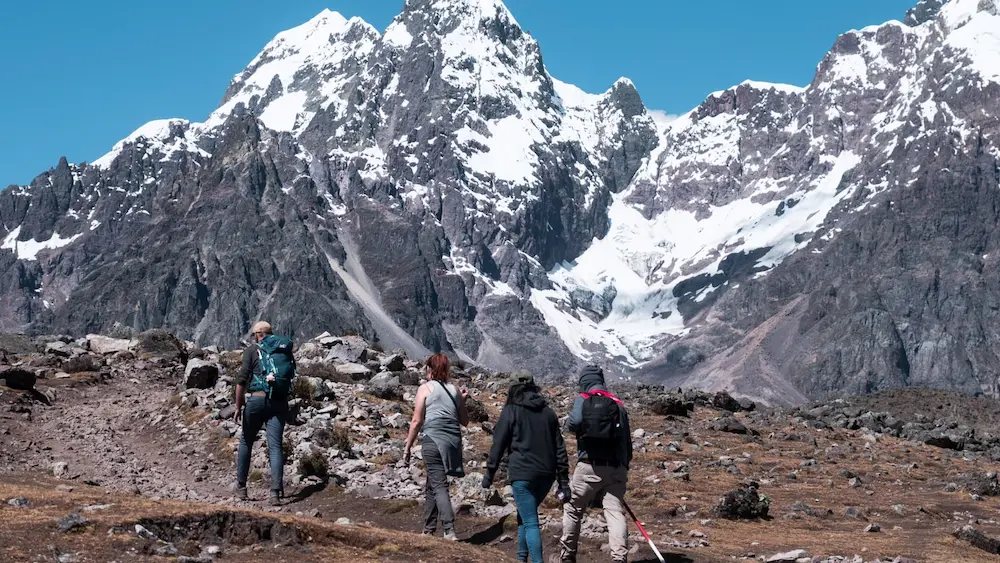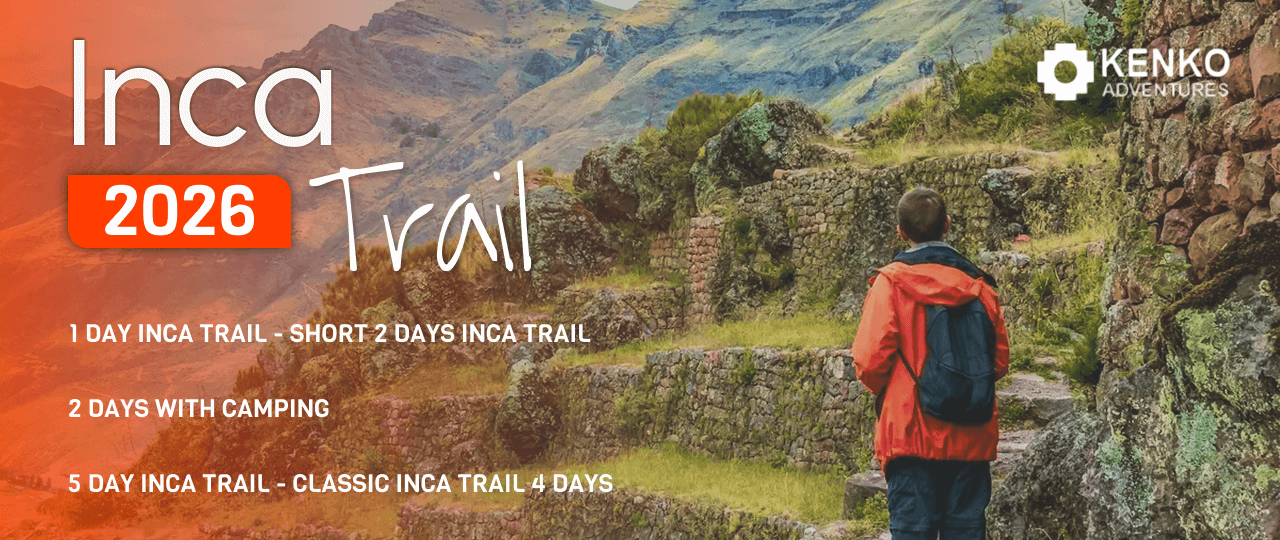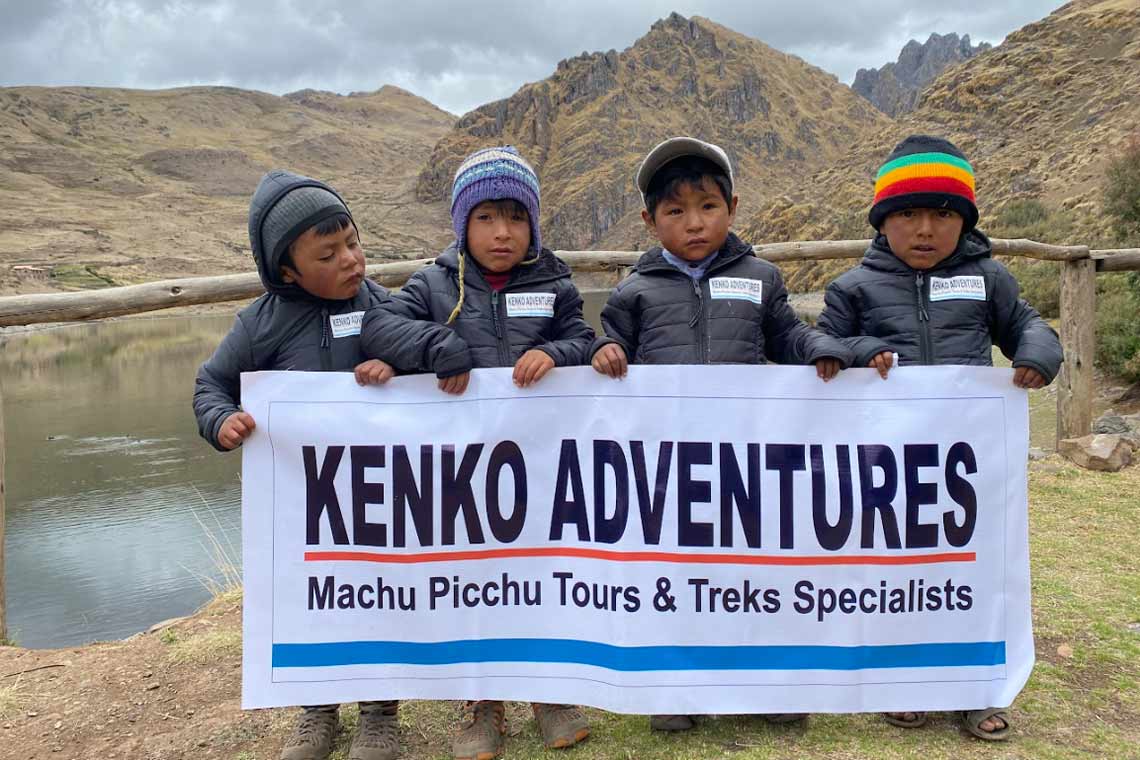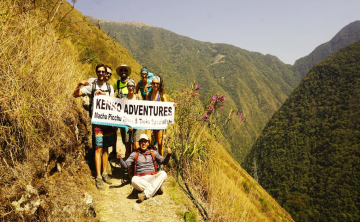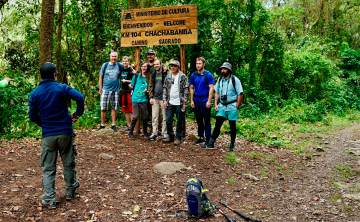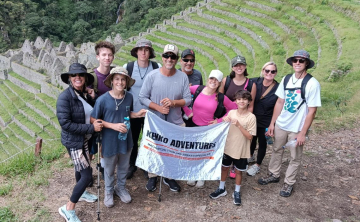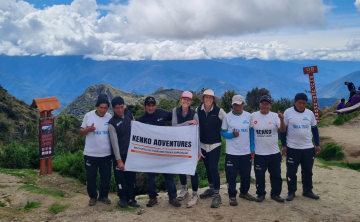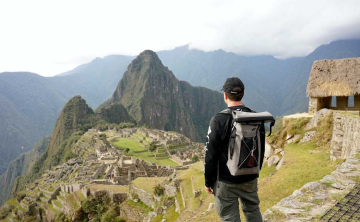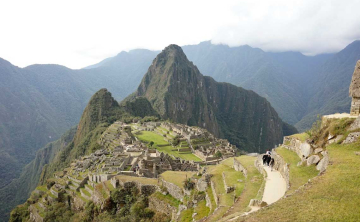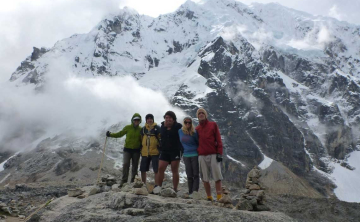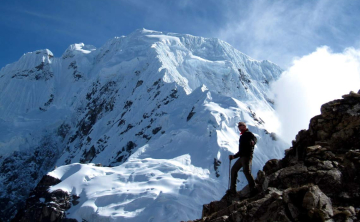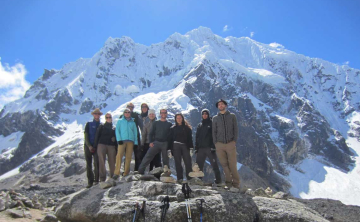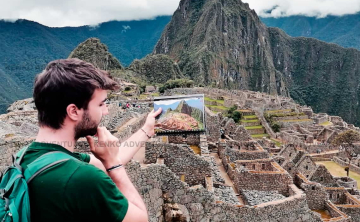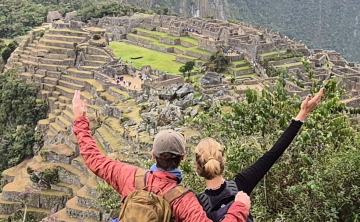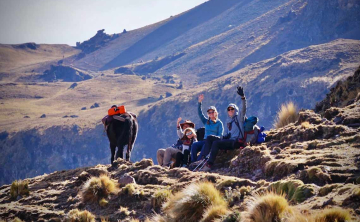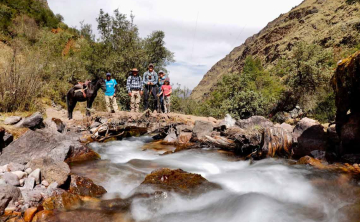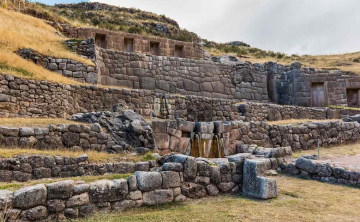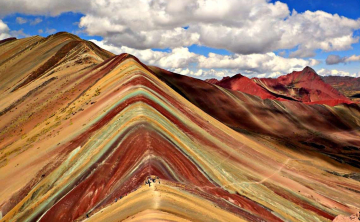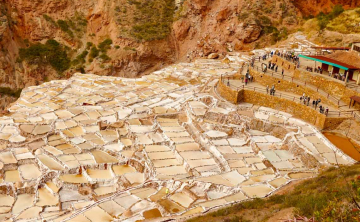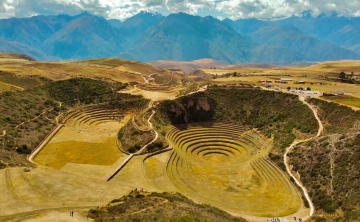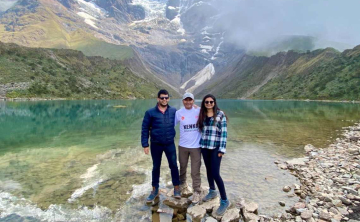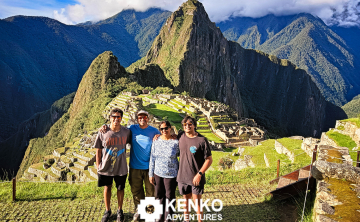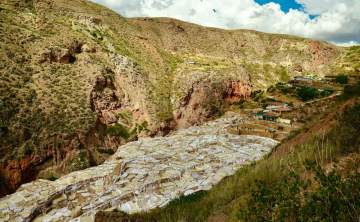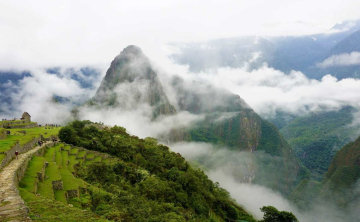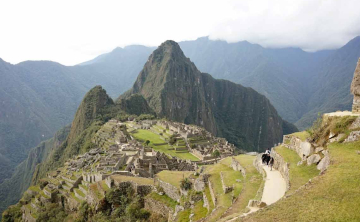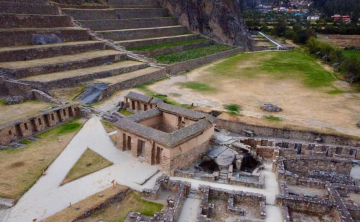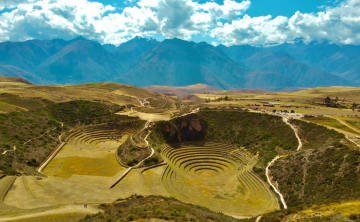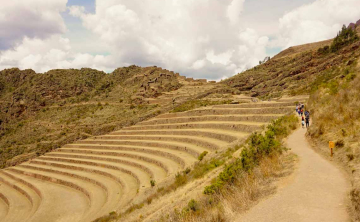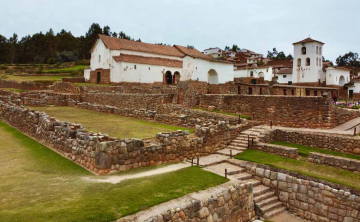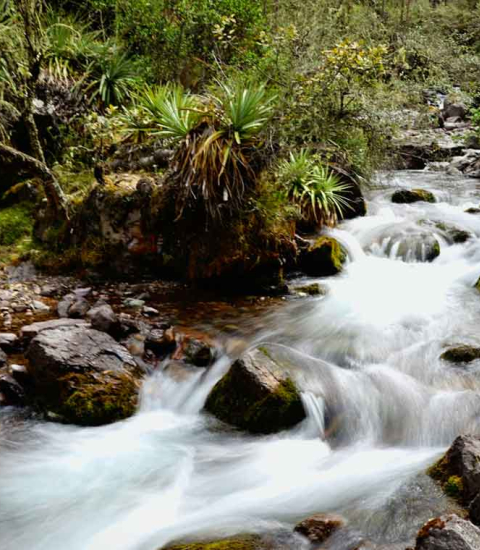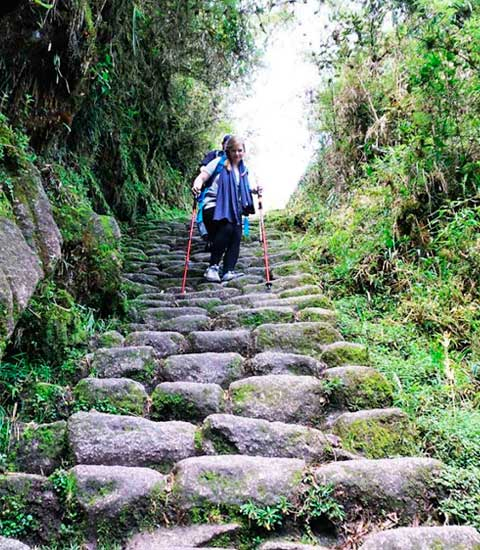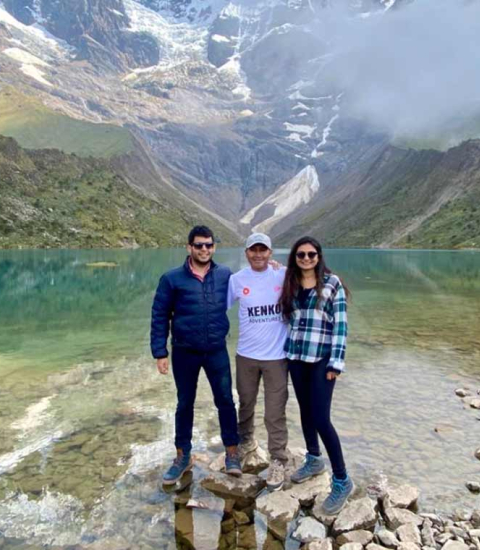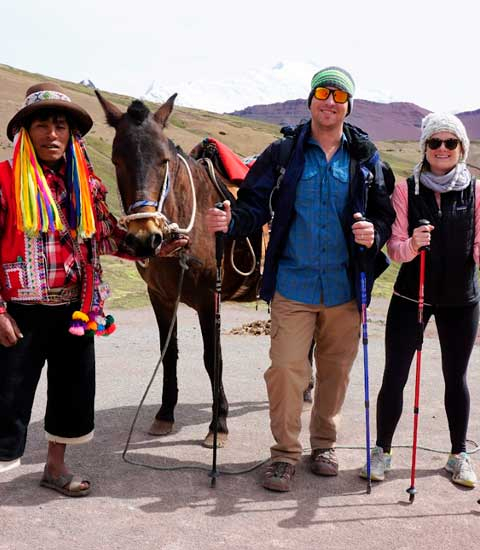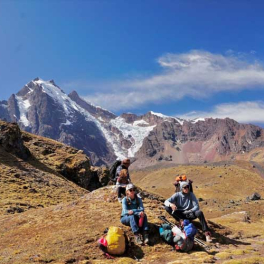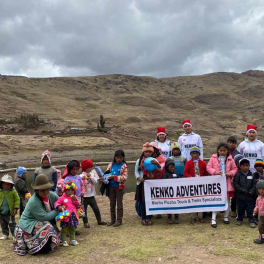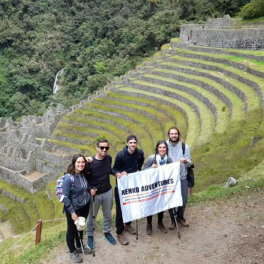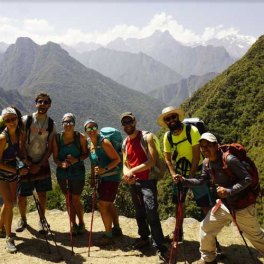The Apu Salkantay
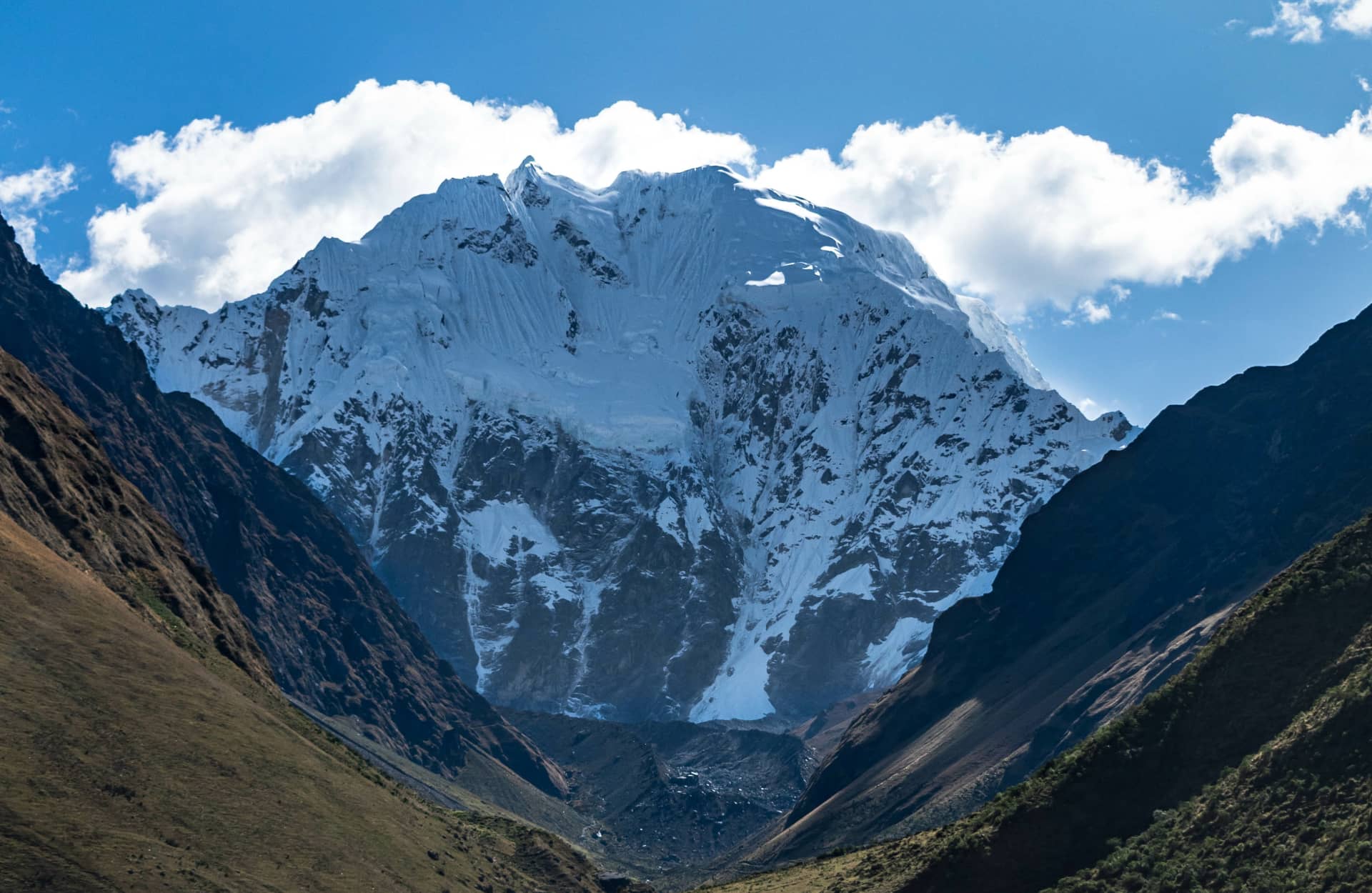
Towering over the Andean landscape, The Apu Salkantay is more than a snow-capped mountain — it is a symbol of power, spirituality and adventure in the heart of Peru. Surrounded by dramatic valleys, turquoise lagoons and ancient trails, this sacred peak has captivated travelers, explorers and local communities for centuries.
Whether you are drawn by its cultural significance, its breathtaking scenery or the challenge of one of the most iconic trekking routes to Machu Picchu, this destination offers a deep connection with nature and Andean heritage. Exploring this region is not just about reaching a summit, but about experiencing the living traditions, landscapes and stories that define the Peruvian Andes.
Peru's Mythical Salkantay Peak
If your future travel destination is Peru, you’re certainly not alone. Many travelers are drawn to this ancient land for its breathtaking landscapes and sacred mountains that dominate the Andean horizon. Among them, The Apu Salkantay stands out as one of the most powerful and symbolic peaks in the Cusco region.
Surrounded by snow-capped summits and dramatic valleys, The Apu Salkantay holds a deep spiritual connection to Andean culture and is closely linked to one of the most famous destinations in the world: the Inca citadel of Machu Picchu. Its imposing presence, combined with its sacred meaning, makes it a must-visit destination for nature lovers and adventure seekers.
Among the most iconic and remarkable snow-capped mountains the Apu Salkantay stands out due to its connection with the most popular destination in Peru, (and probably in South America) the ancient Inca citadel of Machu Picchu.
The hike has been recommended by National Geographic's Magazine and today we’ll be giving you our own take on this mystical destination. Below, we explore the history, mythology and adventure behind this legendary mountain.
You might also want to check out: Inca farming methods | The backbone of an empire
Apu Salkantay what?
The word “Apu” comes from the Quechua language and translates as “Master” or “Lord.” This title reflects the Andean worldview, where the most striking elements of nature—mountains, lakes, rivers, caves and glaciers—are considered sacred beings known as huacas. Among them, the most powerful mountains were revered as gods, protectors of life and balance.
For ancient Andean civilizations spread across present-day Ecuador, Peru, Bolivia and Chile, mountains like Salkantay were far more than geological formations. Even without modern scientific understanding, these cultures recognized the mountain’s vital role in sustaining life through water sources, fertile land and climate regulation.
According to Andean mythology, Salkantay is seen as a “fertilizer” of Pachamama, the Earth Mother goddess. Its glaciers give birth to lakes, rivers and water flows that nourish the surrounding valleys, reinforcing its status as a sacred and life-giving force.
The Myth and the Feat
What is the Apu Salkantay? This snow-covered giant, worshipped as a deity in Andean religion, derives its name from two Quechua words: Salqa (wild) and Antay (producer of avalanches or precipitation). Together, they reflect both the mountain’s untamed nature and its power over the elements.
Rising to an impressive 6,271 meters (20,574 feet) above sea level, Salkantay is considered one of the most challenging peaks to climb in the world. Its steep slopes, unpredictable weather and rugged terrain demand respect, preparation and experience. Those who dare to face its ascent are rewarded with breathtaking views, untouched landscapes and a profound sense of accomplishment.
Beyond its imposing presence, the mountain plays a crucial ecological role, supporting diverse flora and fauna that thrive in its surrounding ecosystems.
Location where is the Apu Salkantay?
The sacred Apu Salkantay is located within the Vilcanota mountain range, approximately 100 kilometers southeast of the city of Cusco. It lies in the Santa Teresa district, within La ConvenciĂłn province, in the Cusco region.
To reach the starting point of this adventure, travelers usually begin their journey in Cusco. From there, a scenic two-hour drive leads to the village of Mollepata, where accommodations and essential traveler services are available. This village serves as a key gateway for those preparing to enter Salkantay’s realm.
It’s important to note that the trek is physically demanding. Proper equipment, acclimatization and knowledgeable guides are essential. Choosing an experienced local tour operator ensures safety, organization and a more rewarding experience in this challenging environment.
The Ideal Salkantay Trekking Season
Timing is key when planning a visit to Apu Salkantay. The best period to experience the trek is during the dry season, which runs from late March through November. During these months, rainfall is minimal, skies are clearer and trail conditions are more favorable.
Daytime temperatures typically reach around 25°C (77°F), while nights can drop to 5°C (41°F) or lower, especially at higher altitudes. These conditions make the dry season ideal for trekking, photography and fully appreciating the mountain’s dramatic landscapes.
You might also want to check out: Summer in Peru: a complete guide to traveling during the summer season
Humantay Lagoon: An Andean Jewel
Not all visitors have the time or desire to complete a multi-day trek. Fortunately, Salkantay also offers accessible experiences, such as a day trip to the famous Humantay Lagoon. This stunning turquoise lake, fed by glacier meltwater, is one of the most photographed natural attractions in the Cusco region.
Surrounded by snow-capped peaks and dramatic scenery, Humantay Lagoon offers a powerful glimpse into Salkantay’s environment and spiritual significance, making it a must-visit destination for nature lovers.
The Trekking Odyssey: From Salkantay to Machu Picchu
Peru's fifth-highest peak offers one of the most popular alternatives to hike to Machu Picchu by embarking on the Salkantay Trek to Machu Picchu – a five-day, four-night tour unveiling novel facets of Cusco. Commencing at Salkantay's base, we marvel at the turquoise Humantay Lagoon, scale the apu's apex, revel in thermal springs, and ultimately explore the global wonder of Machu Picchu. An unforgettable traverse rapidly gaining cult status among thrill-seekers.
Along the route, travelers encounter highlights such as the Humantay Lagoon, high mountain passes near Salkantay’s summit, natural hot springs and lush valleys. The journey culminates at the world-famous Machu Picchu, creating an unforgettable adventure that blends nature, culture and history. This trek has quickly earned a cult following among hikers seeking a more immersive and less crowded alternative to the classic Inca Trail.
Spiritual significance in Andean cosmology
Beyond its imposing presence, this mountain holds deep spiritual meaning within Andean worldview. For ancient civilizations, the natural world was alive, and mountains were revered as powerful beings that governed balance, protection and life itself.
The role of sacred mountains in Andean beliefs
Sacred mountains were believed to act as guardians of nearby valleys and communities. They were associated with rainfall, fertile land and the overall well-being of people. Respecting these peaks was essential, as harmony with nature ensured agricultural success and social stability.
Rituals and offerings to the apus
Rituals were performed to honor mountain spirits through offerings of food, coca leaves and symbolic items. These ceremonies reinforced gratitude, reciprocity and respect for nature, values that continue to influence Andean cultural practices today.
You might also want to check out: Coffee Cultivation in Cusco: An Adventure of Flavors and Landscapes
Biodiversity around the Salkantay region
The area surrounding the mountain showcases remarkable ecological diversity shaped by altitude changes and climatic contrasts. From snow-covered peaks to lush valleys, the region supports a wide range of life forms.
Native flora along the trekking route
Along the trail, travelers encounter high-altitude grasses, medicinal plants and native shrubs adapted to harsh conditions. These plants have been traditionally used for healing, food and rituals, highlighting the close relationship between local communities and their environment.
Wildlife of the Andean highlands
The region is home to iconic Andean species such as condors, vizcachas and native birds. Observing wildlife in its natural habitat adds a unique dimension to the trekking experience and reflects the ecological richness of the Andes.
Physical preparation for high-altitude trekking
Trekking at high elevation requires preparation and awareness. Proper physical conditioning and acclimatization are key to enjoying the journey safely and comfortably.
How to acclimatize properly
Spending time at intermediate altitudes allows the body to adjust gradually. Staying hydrated, maintaining a steady pace and allowing rest periods help reduce the effects of altitude sickness.
Recommended fitness level and training
A moderate level of physical fitness is recommended. Cardiovascular training, hiking practice and strength conditioning prepare travelers for long walking days and uneven terrain.
A journey beyond the summit
Being a rugged natural realm, the Apu Salkantay is best savored through an experienced, responsible tour operator adeptly catering to the thousands globetrotters flocking to Cusco yearly to immerse themselves in this snow-crowned glory.
Don't hesitate any more and let's begin with your hike's arrangements, we're only one click away from you.
Exploring this majestic Andean mountain is an experience that goes far beyond trekking or sightseeing. It is a journey into living traditions, breathtaking landscapes and a worldview that values balance between humans and nature. Every step along the trail reveals not only stunning scenery, but also the deep cultural roots that continue to shape life in the Andes.
For travelers seeking adventure with meaning, this destination offers an unforgettable connection to Peru’s natural and spiritual heritage. With proper preparation and responsible travel choices, the experience becomes both enriching and respectful, leaving lasting memories of one of the Andes’ most powerful and awe-inspiring landscapes.
